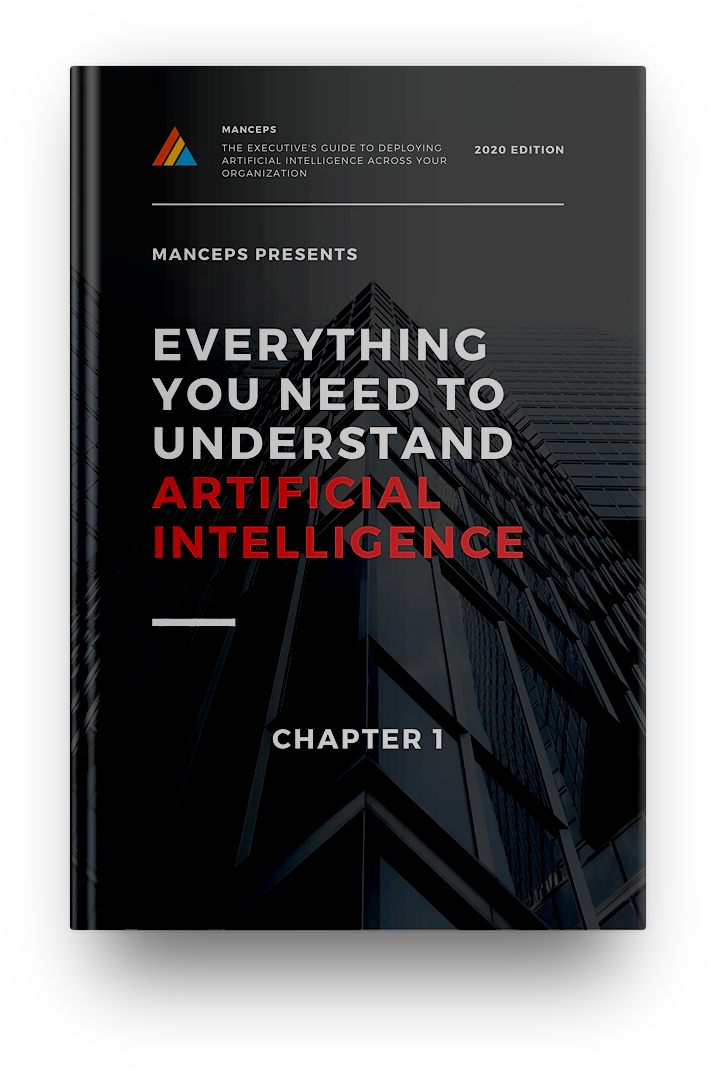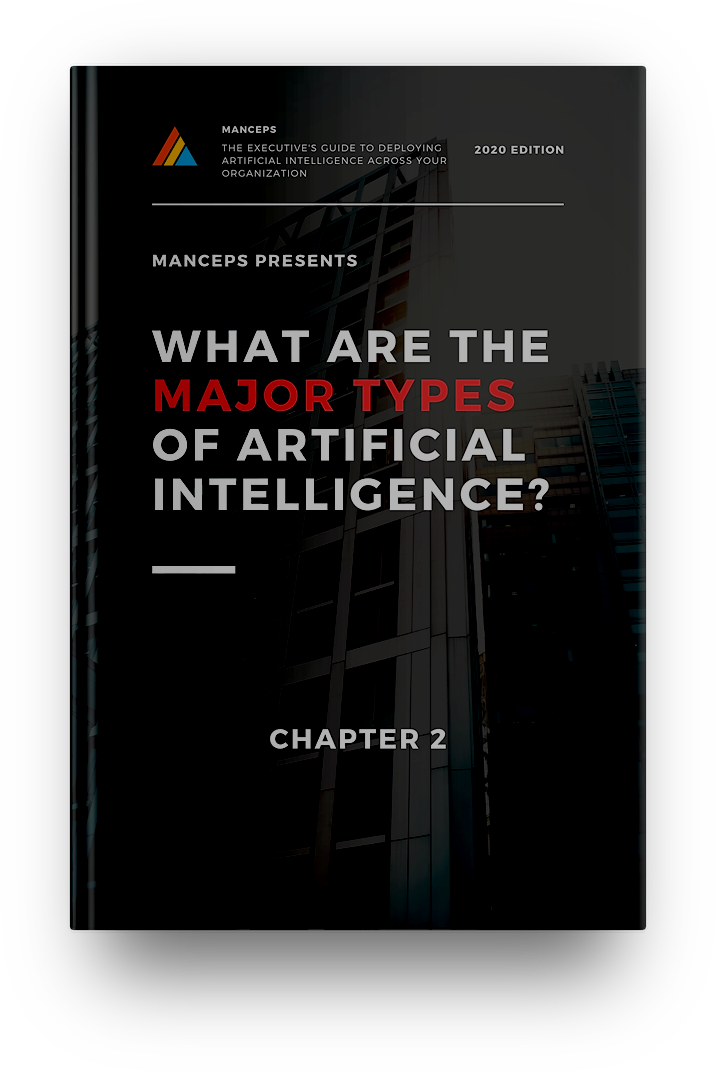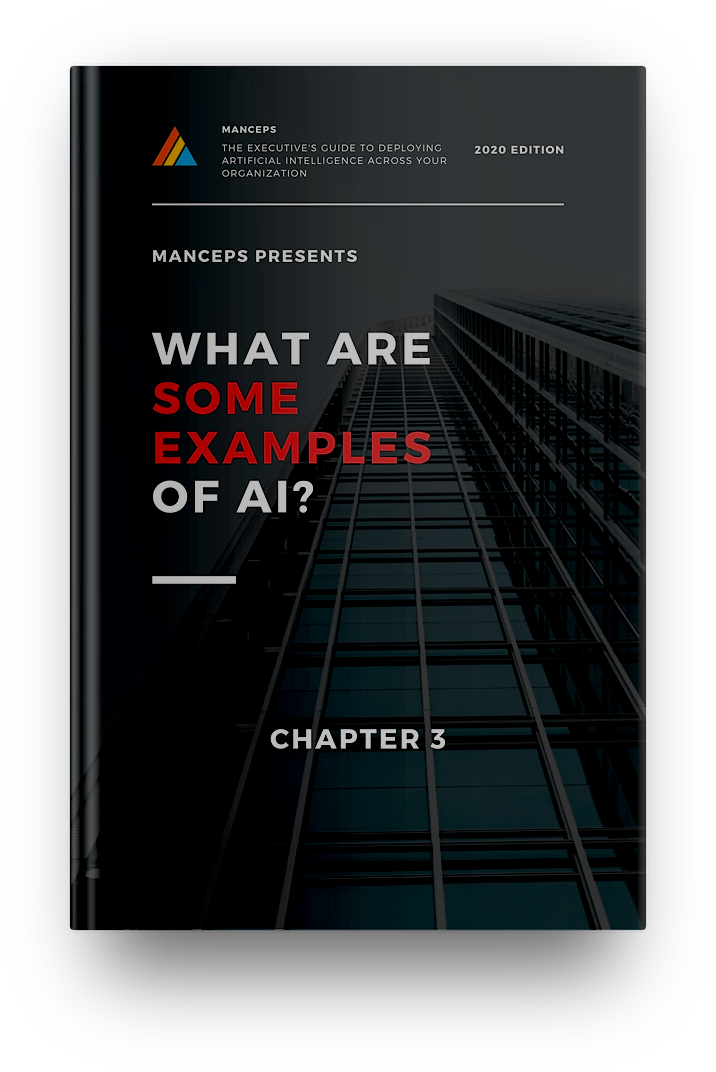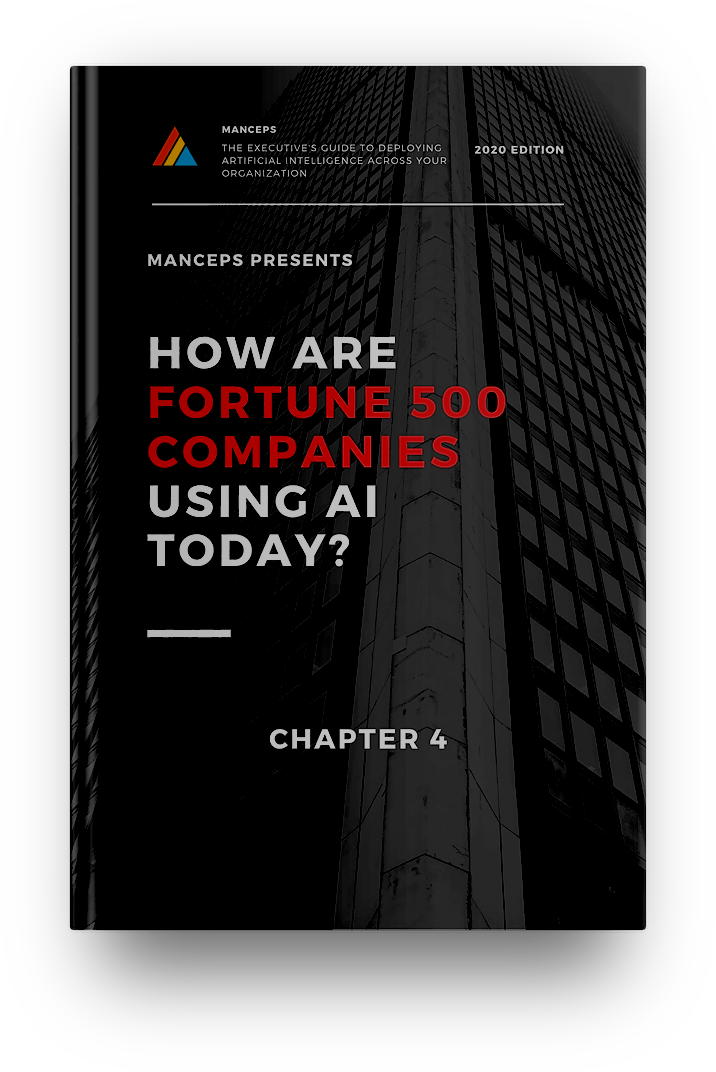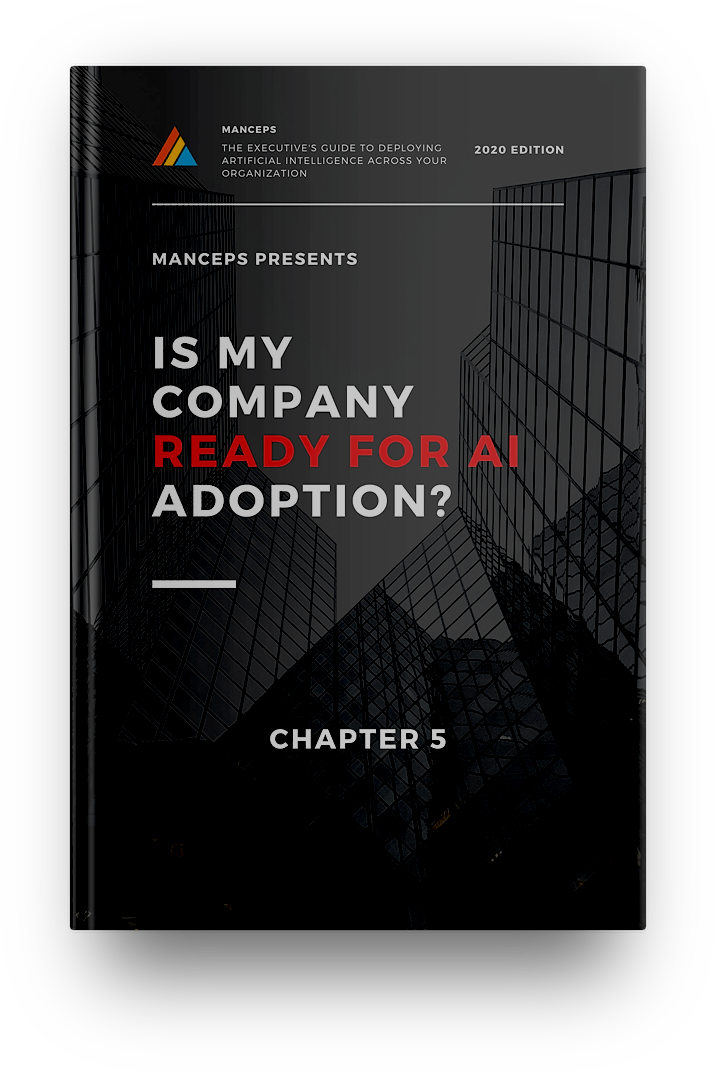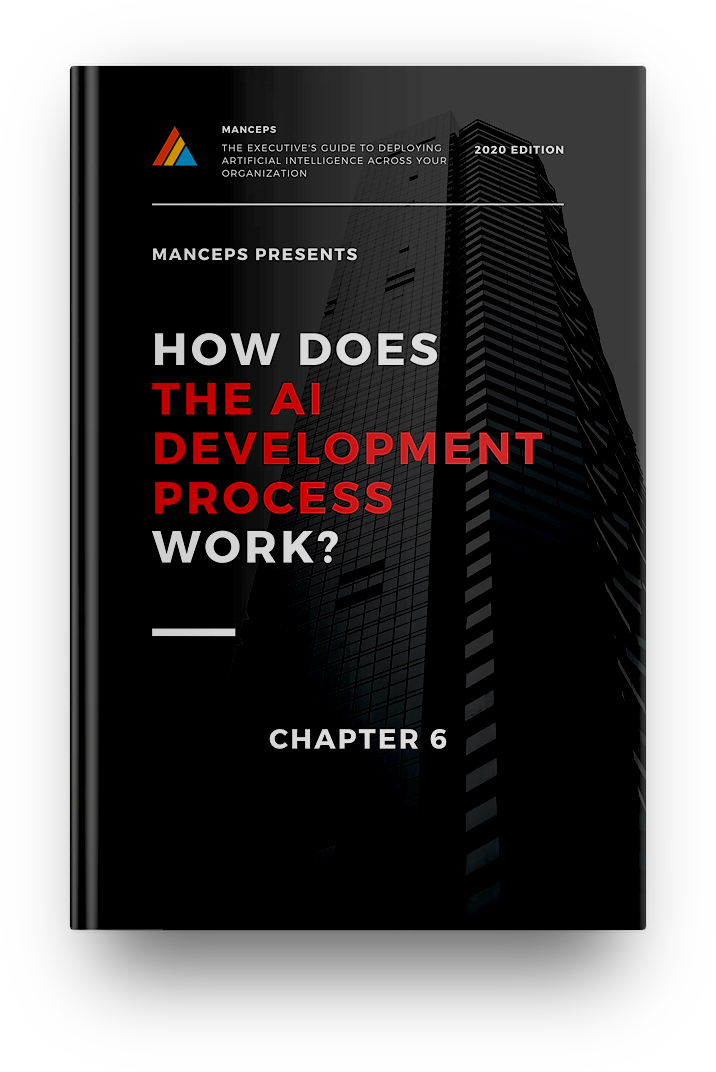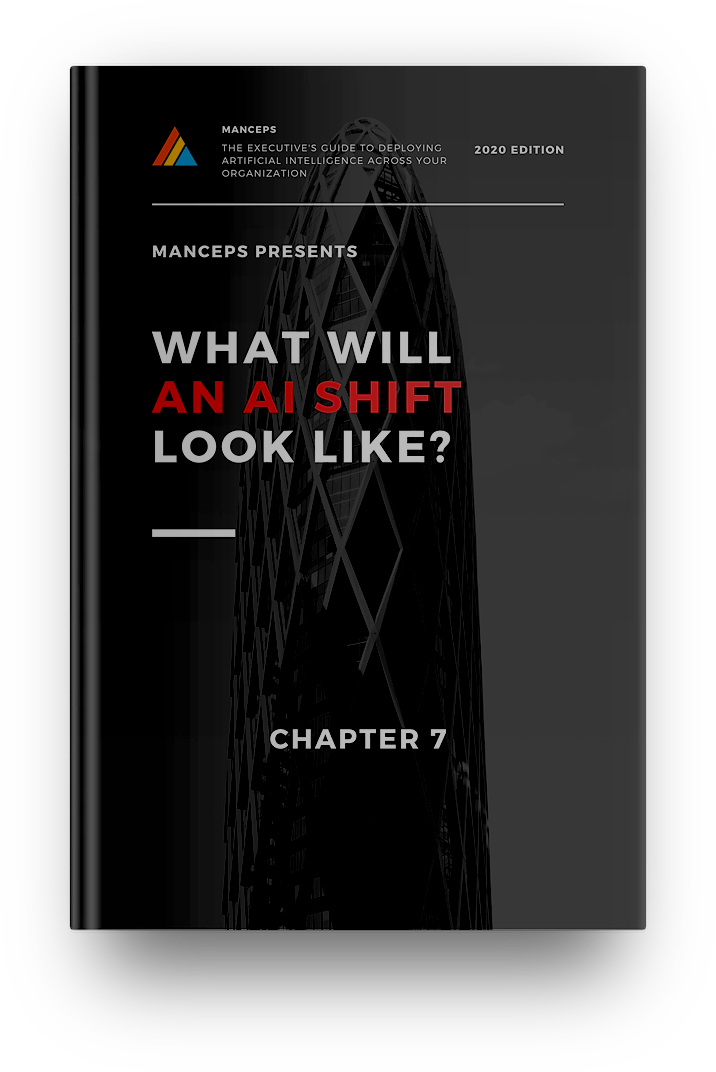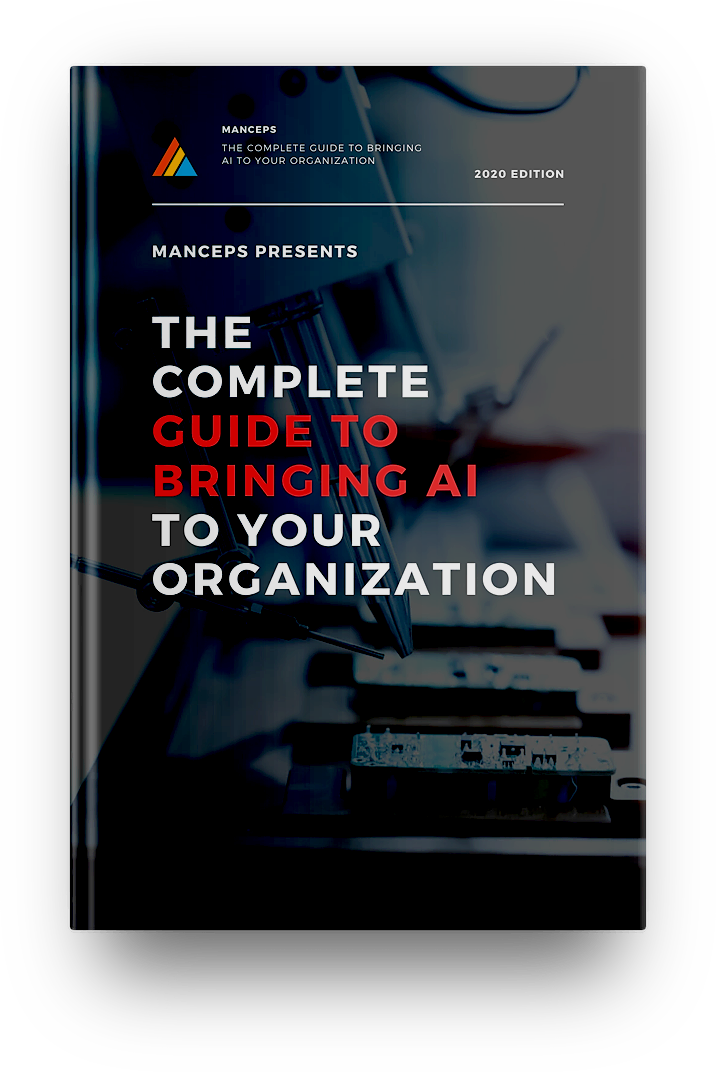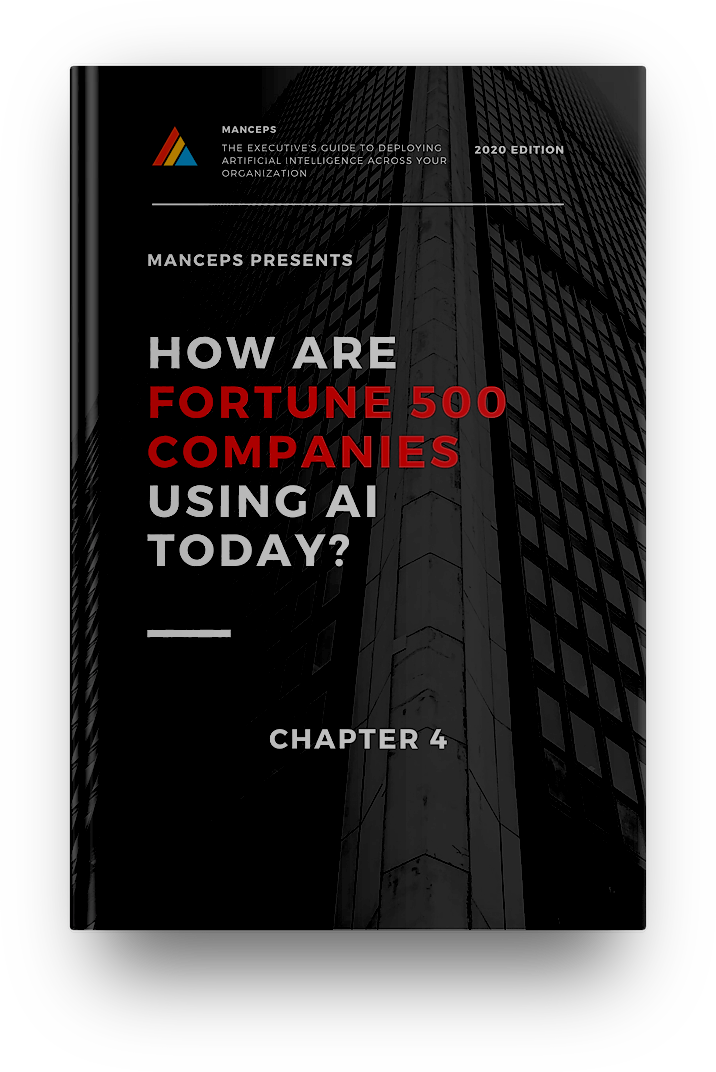
Free Resource
How Are Fortune 500 Companies Using AI Today?

Learn How the World's Best Companies Are Using AI
In the last guide, we considered the broad ways that companies are using artificial intelligence to develop new products, optimize and automate repetitive processes, and provide better customer service.
In this quick chapter, we thought it would be useful to see how some of the world’s biggest companies are using artificial intelligence. This collection is taken from our epic article: 50 AI Examples from the Fortune 500. Be sure to check it out for a deeper dive into any of these use cases.
A big takeaway from this list is that many, many companies are relying on outside resources to deliver their AI capabilities. This gives technology teams much more flexibility to deploy AI at scale.
In one of its first forays into AI, Amazon built a recommendation engine to make it easier for customers to surface more of the things they might like to buy.
Amerisourcebergen, the world’s most profitable pharmaceutical company, is bringing artificial intelligence to its benefit verification process.
Anthem embarked on a 12-month pilot project with the company, doc.ai to determine whether AI could be used to predict allergies.
Siri is a perfect example of how Apple runs on AI. The voice-powered assistant is designed for continual, at-the-edge improvement.
Archer Daniels Midland recently invested in a company that uses drones and image recognition technologies for farming.
By thinking creatively about opportunities for AI-powered automation, AT&T can deliver a better product for both its customers and its advertisers.
Bank of America is using AI to help reduce its labor force and drive more of its customers to receive help via automated systems and chatbots.
Berkshire Hathaway partnered with an AI data platform to optimize the insurance underwriting process.
Cardinal Health recently released a platform designed to support oncology professionals by making available a robust set of AI-powered capabilities.
In 2016, Chevron rolled out a machine learning system that could help it identify new well locations and stimulation candidates.
Citigroup launched an initiative to bring ML to the highly manual process of reviewing global trade transactions and ensuring their compliance.
Comcast is using AI to completely automate the process by which customers (a) receive phone support and (b) get technicians sent to their homes.
Since 2010, Costco has used the purchasing history of its 90 million customers as inputs to help them determine new store locations.
CVS Health partnered with AI startup, Buoy Health, to deliver AI-powered customizations and healthcare recommendations to their more than 1,100 Minuteclinics.
In 2018, Dell partnered with NVIDIA and Intel to launch a suite of hardware solutions designed to facilitate the deployment of artificial intelligence.
Dupont is using AI to scan their manufacturing equipment and ensure the quality of the products they produce.
ExxonMobil deployed an AI-powered algorithm to make it easier for its deepwater prospecting teams to drill at the bottom of the sea.
Fannie Mae partnered with Moogsoft to deploy the AI Ops platform across their organization for enterprise monitoring, reducing IT issues by a third.
FedEx is rolling out Roxo, an autonomous delivery robot that uses AI to navigate.
Ford was one of the first companies to deploy a neural net at scale and has since brought AI to both their assembly lines and in the operation of their sales departments.
Freddie Mac recently partnered with an AI fintech firm to bring ML & NLP to the mortgage underwriting process.
GE uses AI to cut the design process for jets and wind turbines in half.
General Motors deployed generative design to bring a 40% reduction in weight and a 20% increase in strength to their vehicle parts.
Last year, Google released Tensorflow, its open-source platform for machine learning, giving everyone access to one of the most advanced machine learning platforms ever created.
Home Depot deployed a monitoring system that uses prescriptive analytics to reduce shoplifting, employee theft, or other errors (known collectively in the retail industry as “shrink”).
IBM’s Watson is one of the most famous cognitive technologies in the world, winning Jeopardy, designing clothes, & inventing recipes.
Intel is looking to super-charge their data centers with more AI-powered capabilities. The shift to AI will affect 32% of its business.
Johnson & Johnson recently acquired Verb Surgical, a Google-backed startup focused on bringing robotics, data science, and automation to surgery.
JP Morgan Chase signed a 5-year contract with AI ad copywriters, Persado, increasing their click-through rate by 5x.
Kroger has an in-house team charged with framing, building, deploying machine learning solutions across their business regularly.
Lowe’s recently hired 2,000 tech workers, including a dedicated team of AI experts, to support their ecommerce and operational efforts.
Marathon has recently rolled out a suite of tools in its drive to automate its oil-drilling sites.
Metlife uses voice recognition to provide real-time feedback to its customer service team, offering on-screen advice like “finish your thought” and “you are speaking slower than usual.”
For several years, McKesson has maintained a partnership with a global professional services firm focused on bringing about digital transformation.
To monitor the quality of their potato chips, Pepsico bounces lasers off of them and uses AI to listen to the echoes.
Phillips 66 uses AI-powered robots to inspect oil tanks without having to drain them first.
In 2007, Proctor and Gamble released an AI-powered makeup quiz that could analyze your selfies to create a skincare regimen.
Prudential has made a big AI investment to ensure their customers are more precisely matched to their suite of insurance products.
Statefarm launched a $100 billion fund to invest in insurance startups that deploy AI and ML.
Target uses AI imaging technology to give customers virtual makeovers and drive makeup sales.
Like Amazon, United Healthcare is deploying natural language processing across large swaths of its business.
United Technologies recently deployed an AI-powered drone that can map convoluted and complex urban environments.
UPS’s On-road Integrated Optimization and Navigation system, uses AI to power one of the most advanced fleet routing systems on earth.
Verizon’s Connect is an AI-powered fleet management solution that can automatically process in-car telemetry and dashcam footage.
Walgreens partnered with Microsoft to develop new health care delivery models, technology and retail innovations to advance and improve the future of healthcare.
Walmart is bringing image processing to all of its locations to make it easier for employees to keep their stores running smoothly.
Wells Fargo has made a multi-billion-dollar investment in data analytics and are developing a variety of AI algorithms for their financial products.
Explore Our Other Guides
We've written up lots of articles to help business professionals orient themselves around AI. Learn how Artificial intelligence can meaningfully change how your organization does business by exploring the resources below.


